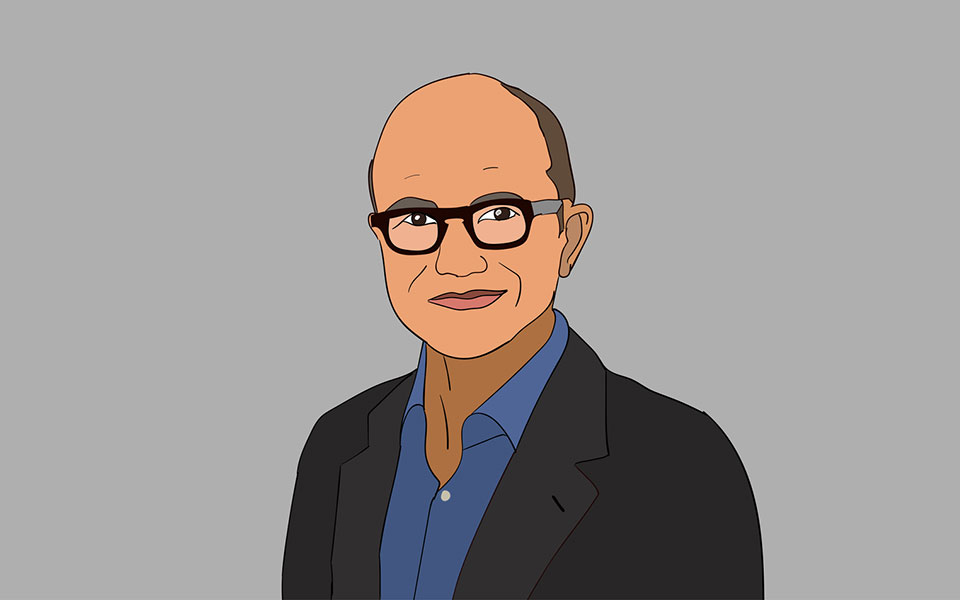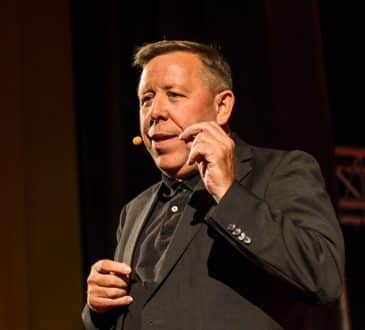Uncertain Times Call No for Adjustments, But for Bold Shifts. Here’s Where to Begin

Two things are undeniably true. The first is that regardless of which part of the planet you occupy or what sector you work in, the world today is turbulent. Just pre-pandemic, a survey of 1,500 senior leaders found 84% describing their current operating world as “increasingly disruptive.” Immediately prior to that, PwC found a 4 in 5 CEOs describing the landscape uncertain at best, and more accurately, unpredictable—all of this before Covid. The second thing that’s true is that, too often in such circumstances, rather than truly shift our strategy, we simply attempt to run faster just to keep up. At best, that’s a staying in place strategy—as if any place remains the same in a volatile, uncertain, complex, and ambiguous landscape.
To truly thrive in uncertainty, you have to change not just the things you do, but the way you do whatever it is you do. It’s really more than that in a world that is hell bent on continuing to change. You have to shift the framework driving how you think. Here are three shifts that today’s most effective leaders are making in their thinking that’s enabling them to thrive.
Shifting from being only about the ‘Now’ to the ‘Long View Right Now’
Good organizations have a purpose and a mission. Great ones have a clear sense of what that means to them every single day, in every single decision and act, by every person who makes up the team. Yes, having a purpose is vital. But making it shared and ubiquitous is something else entirely. One of my favorite examples of this is Patagonia. The outdoor outfitter has a strange yet highly effective habit of killing product lines, often extremely profitable ones. It’s a habit that seems completely counterintuitive to being profitable in the here and now. But each and every day, the company is conscious of its greater shared purpose: to enable people to get out into the great outdoors. So anytime they discover that their products, even if effective in getting people outside, are doing harm to that outside (aka: the environment), they set a goal to quickly change or if necessary purge the offending product. They know that even if keeping the offending product line means short-term gain, doing so undermines their ability to stick around long-term and to reap the larger value they’re truly after.
Shifting from knowing ‘How’ to knowing ‘Why’
The frenetic pace of change and the prevailing air of unpredictability in today’s landscape increasingly causes all of us to focus on efficiency: how can we get done, fix, or speed up what we do to meet the needs of the moment? The air around us is thick with an overemphasis on how we get things done. It’s precisely the environment in which we are at the greatest risk of forgetting why. You could have the best plan in the world, even the best people to execute it, but if you forget why, you risk losing it all. Consider the American Revolution.
When the Continental Army dragged itself into Valley Forge in the winter of 1777, they really weren’t either—an army, or continental. They were a rag tag bunch of independent militias, begrudgingly sent by 13 separate jurisdictions to fight. But the actual reason wasn’t as clear. In February of that winter, Baron von Steuben arrived at the Continental encampment and within a few short months transformed 5,000 scattered souls into a true fighting force, one that would go on to beat overwhelming odds and win Americans their freedom.
When most ponder how von Steuben was able to do what countless other capable leaders had tried to do and failed, they typically credit his decades-long experience fighting for various armies in Europe. While agreeing that basic training and drilling and a plan were indeed important, von Steuben credited something else as the most pivotal—something he described in a letter to a military friend back in Europe. “You,” he wrote to his peer, “you say to your soldiers, ‘Do this,’ and ‘do that,’ and they do it. Nothing less, nothing more. But I,” von Steuben said, “I am obliged to say, ‘This is the reason why.'” Simple. Powerful. And inevitably, fundamental.
Shifting from ‘Playing Hero’ to ‘Playing Team’
One thing, one critical, foundational thing is true: being in charge, holding the senior leader position, is simply not enough to keep pace with the ever-shifting demands of leadership in today’s world. Indeed, you need an entire legion alongside you to step up to the shared challenge of leadership.

Too often we equate the leader with leadership, when in fact leadership is a capacity all of us possess and which, to be effective, all of us must embrace. Seven short years ago, when Microsoft’s CEO Satya Nadella set forth a new North Star purpose for the company to “empower every person and every organization on the planet to achieve more,” it was the kind of purpose too great for one person. But unlike many companies and leaders, Nadella called out that very point. He then added a second goal to the first: to move Microsoft from a culture of ‘know-it-alls’ to one of ‘learn-it-alls.’ Though it appears a simple move, in making it Nadella made clear a simple truth and his commitment to honoring it: To lead well, we need one another. He was saying more still: Even what we know collectively today, isn’t enough to progress to tomorrow and beyond. We have to keep going. We—together—must keep pushing and keep growing what we know, how we see the world, and how we lead. Successful leadership is a team sport.
The kind of shifts described above aren’t incredibly complex. In truth, they are quite straightforward. The real challenge comes in making them forefront in our thinking and actions, spending less time simply trying to keep pace, and more time remembering what we’re after in the end and why.
Written by Larry Robertson.
Bring the best of the CEOWORLD magazine's global journalism to audiences in the United States and around the world. - Add CEOWORLD magazine to your Google News feed.
Follow CEOWORLD magazine headlines on: Google News, LinkedIn, Twitter, and Facebook.
Copyright 2025 The CEOWORLD magazine. All rights reserved. This material (and any extract from it) must not be copied, redistributed or placed on any website, without CEOWORLD magazine' prior written consent. For media queries, please contact: info@ceoworld.biz











